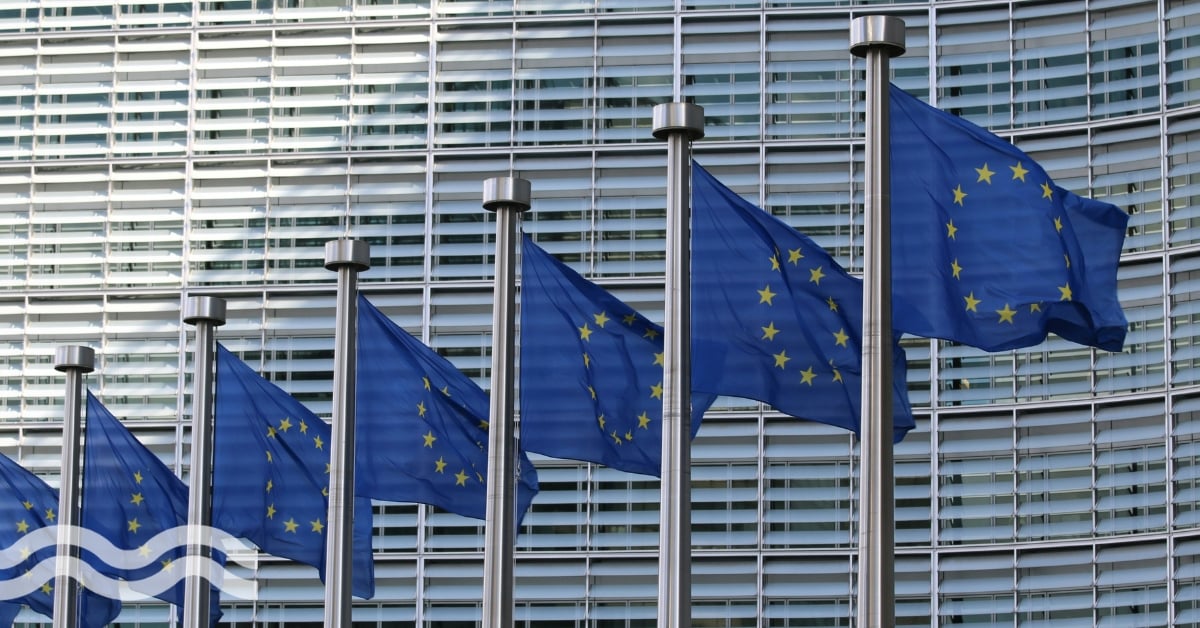Federation calls for ban on all new PFAS usage
Use of per- and polyfluoroalkyl substances (PFAS) in consumer products should end immediately if the world is to have a chance of tackling the so-called forever chemicals, according to a report published by EurEau, the European federation of national associations of water services.
A chance to make drinking water safe for all
EurEau has long called for greater action on tackling the problems posed by continued use of PFAS. The federation believes a ban is essential to prevent further contamination and to 'ensure the availability of safe, affordable water for all'.
EurEau president Pär Dalhielm told media: "Our water service providers work tirelessly to deliver clean, safe, and affordable water to everyone. A universal ban on PFAS will not only help safeguard health but will also drive innovation and economic growth by encouraging the development of safer alternatives. The cost of inaction is far too high, especially if human health is at stake."
French press critical of EU policymakers
Dalhielm's statement follows the publication of an investigation led by French newspaper Le Monde, which highlighted the need for EU policymakers to enforce a comprehensive ban on the continued use of PFAS chemicals. This involved 46 journalists and 28 media partners from 16 countries, and led to the conclusion that the cost of cleaning up PFAS pollution could top €1.9tn in UK and Europe
The investigation was based on 14,500 previously unpublished documents and included filing 180 freedom of information requests (FOIs), 80 of which were shared to the journalists by Corporate Europe Observatory.
EurEau also published a paper - PFAS: a pre-requisite for a water resilient Europe – which highlights the impact of continued PFAS use on water resources and the financial cost of removing them from the water cycle.
As EurEau highlights, while a ban would halt the flow of PFAS to water sources, land, and into the human food chain, there will still be a need to treat the chemicals already present in those environments, with the drinking water sector facing an annual increase of up to €18 billion in treatment costs, and the cost on the wastewater and sludge management side is much higher.
What is the European Union doing to address PFAS concerns?

The European Commission has suggested focusing on clarity regarding PFAS, while tightening controls on subsets of the chemical family. For example, in 2024, the use of undecafluorohexanoic acid ('PFHxA') and PFHxA related substances were restricted under the EU's REACH Regulation, although these were subject to various conditions and timelines.
The European Commission released at statement at the time, stating: "The restriction on this sub-group of PFAS is one more milestone that brings us closer to a toxic-free environment. Our EU rules allow us to restrict harmful substances when there are safe alternatives. To the benefit of all consumers and for a green transformation of our society."
EurEau recommendations
However, EurEau wants Europe's policymakers to go further. In the forward to its report, it states: "Only a prompt and far-reaching PFAS ban can ensure that PFAS exposure in future generations will gradually approach safe levels again."
Addressing policymakers and acknowledging the tough nature of policy decisions that affect so many areas of work, life and the environment, the report states: "How much harm to people and the environment is tolerable to protect PFAS applications - some of which are highly useful for society? Which additional costs/losses for healthcare, food production, water services, tourism and soil decontamination are acceptable compared to the costs of transitioning towards a future-proof chemical industry?"
The EurEau report ends with the following recommendations for policymakers:
- Support a far-reaching ban for PFAS used in products made inside and outside the EU: Policy makers and stakeholders should support the ECHA 'universal PFAS restriction' process and the European Commission should add the restriction to annex XVII of the REACH Regulation without undue delay. "We simply cannot afford continued PFAS emissions to the aquatic environment."
- Prolong PFAS use only in certain essential applications for a limited time: Some PFAS uses, for example in medical applications, might be essential for people's health. In line with the [EU] Commission's approach, these applications might enjoy longer transition periods, provided PFAS release to the environment is minimised and the end-of-life management is subject to strict certification. With a view to protecting our drinking water, the WHO advises its member countries that "all non-essential uses of PFAS should be stopped".
- Ban PFAS in fire-fighting foams: Fire-fighting foams have caused dramatic local PFAS pollution across our continent and alternatives are available.
- Tackle PFAS in plant protection products: The European Commission should immediately withdraw the authorisation for all PFAS-containing plant protection products and biocides, particularly those that lead to the formation of TFA. Available data suggest that their use is leading to the accumulation of this substance in soil and groundwater.
- Set health-derived limit values for PFAS including TFA in drinking water and food accompanied by strict control-at-source measures to avoid PFAS release to the environment.
- Provide a long-term framework: Regulation drives innovation. Only a clear phase-out date, possibly, supplemented by a short transition period, provides the regulatory framework that stimulates investment in alternative solutions. PFAS are increasingly restricted in other parts of the world. Europe can become a forerunner in developing PFAS-free alternatives.
- Make the polluter pay: PFAS pollution costs billions of euros every year. These costs are today borne by water operators, municipalities, health insurances, governments, and others. By incorporating these costs in the PFAS price, we will not only bring fairness to the protection of people and the environment, but also make alternative, more sustainable solutions more competitive. Public authorities should provide complementary financing.
- Promote innovation: The EU's research programmes should support the development of adequate and more sustainable PFAS substitutes and PFAS removal and destruction technologies.
Share your water technology stories with us
Do you have an innovation, research results or an other interesting topic you would like to share with the international water technology industry? The Aquatech website and social media channels are a great platform to showcase your stories!
Please contact our Sr Brand Marketing Manager Annelie Koomen.
Are you an Aquatech exhibitor?
Make sure you add your latest press releases to your Company Profile in the Exhibitor Portal for free exposure.
We promise never to send you spam and you can unsubscribe at any time!



